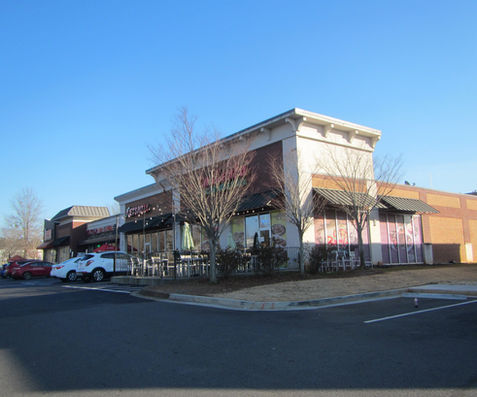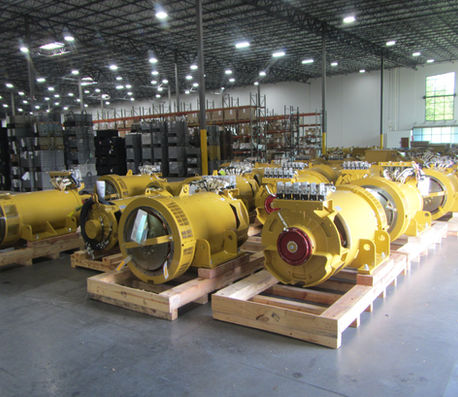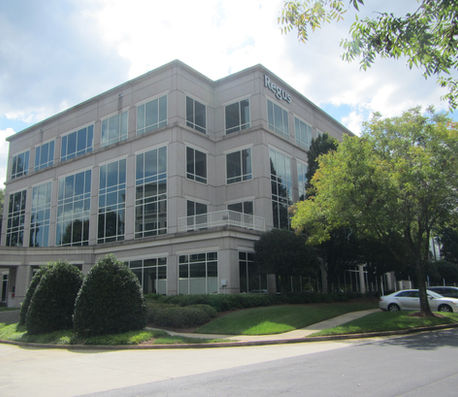
Land Planning and Testing Services
Etowah Geologic, LLC
Georgia Phase I Environmental Site Assessments
Fast Completion, Competitive Cost, Quality Reports
Etowah Geologic, LLC provides Phase I Environmental Site Assessments (ESAs) throughout Georgia and surrounding areas. We offer competitive cost, fast completion times, and quality reports that adhere to the ASTM E1527-21 Standard. Our project managers have over 30 years’ experience completing Phase I ESA reports and we always give free consultation and advice. We also believe that customer service is key in today’s world, and being able to talk to a real person when you call is very important.
Click on the Contact button or call our office if you have questions or would like a site specific cost and proposal.
Our service areas include all of Georgia and surrounding areas, including the following Georgia cities:
Atlanta, Athens, Augusta, Blairsville, Blue Ridge, Canton, Calhoun, Carrolton, Cartersville, Cedartown, Columbus, Commerce, Conyers, Cordele, Covington, Cumming, Dallas, Dacula, Dahlonega, Dalton, Decatur, Douglasville, Duluth, Fayetteville, Fort Oglethorpe, Gainesville, Greensboro, Johns Creek, Jonesboro, LaGrange, Lawrenceville, Kennesaw, Macon, Madison, Marietta, Milledgeville, Newnan, Ringgold, Rome, Roswell, Sandy Springs, Savannah, Tifton, Valdosta, and Warner Robins.
We also serve nearby cities in adjoining states, including:
Alabama: Anniston, Auburn, Birmingham, Gadsden, and Huntsville
Tennessee: Chattanooga, Cleveland, Johnson City, Kingsport, Knoxville, Morristown, and Nashville
North Carolina: Asheville, Charlotte, and Murphy
South Carolina: Anderson, Greenville, and Spartanburg
Properties in Georgia will typically need a Phase I ESA Report to close on a commercial loan.
How Much is a Phase I Environmental Assessment Report?
Etowah Geologic, LLC offers low-cost Phase I Environmental Site Assessment Reports. Our reports typically range in cost from about $1,700-$2,700, depending on the location and type of property. All properties are reviewed and a price quote is prepared based on the size and use of the property, and the requested completion time. Simple vacant lots, retail stores, or small businesses are on the low end of the cost range, and larger parcels, industrial/manufacturing businesses, or gas stations can be on the mid-to high end of the cost range. We have completed large portfolios of sites for less cost per site and we have completed some very large sites that well exceeded our typical price range. We can usually get a RUSH Phase I Environmental Site Assessment Report completed for a few hundred dollars above the typical price range.
For a site-specific price on a Phase I ESA Report, we would need the following information:
-
Property Address
-
Requested Completion Time
-
Your Purpose for Needing the Report
-
Contact Name, Address, E-mail, and Phone Number
Click on this Price Quote link and complete the requested information or e-mail us at GeorgiaPhase1Environmental@gmaill.com and we will prepare a site-specific proposal for your consideration. We are available anytime to talk and answer questions and we always offer free phone consultations.

The world famous Mule Camp Tavern in Gainesville, Georgia is being redeveloped into modern retail and restaurant space and will need a Phase 1 Environmental Site Assessment in order to get the construction loan.
How Long Does It Take to Get a Phase One ESA Report?
Our standard completion time is 2-3 weeks, but we often get requests for a faster completion date. We have completed ESA reports in as little as 3-5 days. For these RUSH completions, we typically charge a few hundred dollars over our base report cost. We commonly fill requests for a 7-10 day completion for no additional charge.
What is a Phase 1 Environmental Site Assessment?
A Phase I Environmental Site Assessment (ESA) is an assessment of a commercial property to determine if there are any environmental concerns that may cause future environmental liability to a purchaser or lender. It is basically a property inspection that is designed to look for environmental issues such as leaks, spills, historical dry cleaners, landfills, or other concerns. The Phase 1 Environmental Report provides a buyer or lender information on the condition of the property so they can make a decision on whether to buy the property.

An emergency generator with a diesel fuel tank is worth noting in the Phase 1 Environmental Report, but these are not usually considered a "recognized environmental condition" unless there has been a leak or spill that exceeds 25-gallons.
What is the Purpose of a Phase 1 ESA Report?
The purpose of a Phase 1 Environmental Site Assessment is to evaluate a commercial property for potential “recognized environmental conditions” (RECs) as defined by ASTM Standard Practice E1527-21: “Standard Practice for Environmental Site Assessments: Phase I Environmental Site Assessment Process”. The ASTM lists the definitions of different types of RECs as follows:
Recognized Environmental Condition (REC) is defined by the ASTM Standard as: (1) “The presence of hazardous substances or petroleum products in, on or at the subject property due to a release to the environment; (2) the likely presence of hazardous substances or petroleum products in, on or at the subject property due to a release or likely release to the environment; or (3) the presence of hazardous substances or petroleum products in, on or at the subject property under conditions that pose a material threat of a future release to the environment.”
A Recognized Environmental Condition is basically evidence of the presence, past presence, or future material threat of a leak or spill of petroleum products of hazardous materials to soil or groundwater at the property. Small spills or leaks that occur on concrete or another impermeable surface are generally not classified as a REC.
Controlled Recognized Environmental Condition (CREC) is defined by the ASTM Standard Practice E1527-21 as:
“A REC affecting the subject property that has been addressed to the satisfaction of the applicable regulatory authority or authorities with hazardous substances or petroleum products allowed to remain in place subject to the implementation of required controls”.
A Controlled REC is a REC that has been addressed, but some contamination remains on the property. The “Control” can be one of several items, but most consist of the following:
• A deed restriction that limits or prohibits the use of groundwater and/or restricts certain sensitive land uses on the property. The sensitive land uses are usually things like residential housing, child care, assisted living, hospitals, and medical care facilities where patients have extended stays.
• An engineering control is typically a physical barrier that restricts access to the contaminated portion of the property or prevents exposure to contamination. Engineering controls can be a fence around the contaminated area, an asphalt or concrete surface that prevents exposure to contaminated soil, or a vapor barrier that prevents contaminated soil vapors from migrating to the surface or into buildings. An engineering control can also be a mechanical system to prevent exposure or migration of contamination. The mechanical system can be a groundwater pumping system or vapor venting system, both of which are designed to prevent the migration of contamination to potentially sensitive populations. Many states have regulations that require a deed restriction on properties where contamination is allowed to remain in the ground in excess of applicable clean-up standards. The Georgia Environmental Protection Division (EPD) Underground Storage Tank (UST) Program does not have this type of regulation in place so many old gas stations in Georgia that have received a “no further action” (NFA) required status but will still have soil and or groundwater contamination at the property. This condition is considered a REC, because contamination remains above clean-up standards and no restriction has been pleased on the property. Potential purchasers should use caution when purchasing these types of properties because potential financial liabilities and business risks still exist. Please refer to the sections below that discuss recommendations for purchasing a contaminated property and the Georgia Brownfields Program.


Old gas stations will need a Phase I Environmental Site Assessment to determine if the site has been properly closed and a "no further action" (NFA) letter from the state regulating agency has been issued.
What is Included in a Phase I Environmental Site Assessment?
A Phase I Environmental Site Assessment includes property inspections, interviews, review of historical records, and searches of governmental databases. The following tasks are included in a Phase I ESA per ASTM Standard Practice E1527-21:
-
Site Reconnaissance
-
Records Review
-
Local Agency Records Review
-
Regulatory Database Records Review
-
Reporting of Results
Information used to complete the report will need to be reasonably ascertainable and visually observable. Phase I ESAs do not include any testing or sampling of materials (e.g., soil, water, sediment, building materials, etc), but these items can be added for an additional fee.

A review of historical topographic maps is included in the Phase I ESA Report and serves to help identify any environmental concerns with a property.
When is Phase 1 Environmental Site Assessment Needed?
Although Phase 1 Environmental Site Assessments are not required, it is standard operating procedure for commercial lenders to require one as a condition of getting a loan. Potential buyers may also want to get a Phase 1 Environmental Report before closing to check to see if there may be environmental issues with the property. As an example, if buying a property with commercial tenants, it would be prudent to make sure there was not a dry cleaner or business that generated hazardous waste located on the property, and that the property was not built on an old landfill or contaminated site. The Phase I Environmental Assessment will search governmental databases and will report if a property address contained a site of concern or if a leak or spill was ever reported from that address.
Phase 1 Reports are designed for commercial properties, but can be required for residential properties if the parcel may re-zoned to commercial or have a future business use.
More Information on the Phase 1 Environmental Standard Process.
Requirements for a Phase I Environmental Site Assessment are described in ASTM International publication E1527-21 “Standard Practice for Environmental Site Assessments: Phase I Environmental Site Assessment Process”. The E1527-21 Standard was developed to so there is a guide for a standard customary practice for completing the Phase I ESAs, to help Environmental Professionals prepare high quality and standardized reports, to assure that completion of the EPAs “All Appropriate Inquiry” Rule can be implemented in a practical manner, and to provide the public with an industry standard to interpretation of the EPA’s Landowner Liability Protections (LLPs) offered by the “All Appropriate Inquiry” Rule and the Phase I Environmental Site Assessment Report.
The E1527-21 Standard was updated in November 2021 and the USEPA approved the new standard as meeting the “all appropriate inquiry” rule on February 13, 2023. Our Phase 1 Environmental Site Assessment reports all conform to the new ASTM Standard.
What Do I need to Do to Buy a Contaminated Property or Gas Station?
If you are interested in buying a contaminated property, as gas station, strip mall that contained a dry cleaner, or are redeveloping an industrial site, then we recommend completion of a Phase I ESA to verify there is a recognized environmental condition, then if confirmed, apply to enter the property into the Georgia Brownfield Program prior to closing on the property.
The Georgia Brownfield Program allows for the redevelopment or use of potentially contaminated properties while protecting the purchaser from future liability. Acceptance into the Brownfield Program has several benefits, which are as follows:
-
Parcels classified as Brownfield property are assessed at 40% of fair market value (FMV) for a period of 10-years. The assessed value is set for the entire 10-year term and is based on the lesser of the acquisition cost or the FMV assessed by the County Tax Appraiser. As a result, a purchaser can get reduced property taxes based on acquisition value that is frozen for 10 years regardless of increased value or reappraisal by the county.
-
Eligible remediation and clean-up costs can be credited against the property owners tax liability.
-
Approved properties/purchasers receive protection/relief from:
a) remediation of groundwater contamination;
b) third party liability claims; and
c) future regulatory changes.
The relief from third-party liability and future regulatory changes provides the purchaser with assurance that unforeseen liabilities will not be encountered in the future. Although a prospective purchaser is relieved from liability to remediate groundwater, they are not relieved of that liability for soil. The purchaser’s responsibilities are to define the extent of contamination in soil on-site and complete remediation of soil to the applicable clean-up standards. Since most contaminants are relatively easy to cleanup in soil as compared to groundwater, and the extent of soil contamination is typically small, the clean-up of soil contamination is usually much less cost, and fairly reasonable when compared to the value of the property. And a typical soil clean-up can be a simple excavation or a soil-vapor extraction system, which are both easy compared to the difficulties and duration of cleaning up groundwater contamination. Once the soil clean-up is completed, the purchaser will then have no obligation to investigate or remediate any groundwater or contamination that may have migrated off the subject property.







































